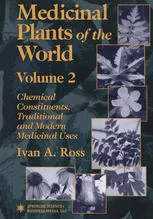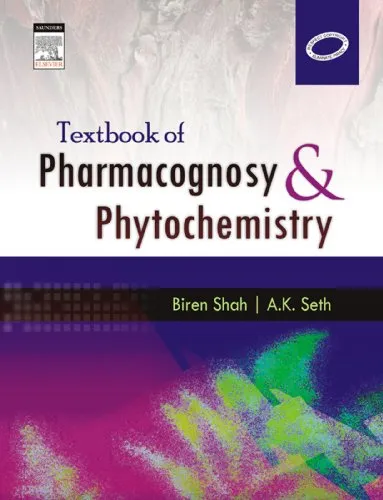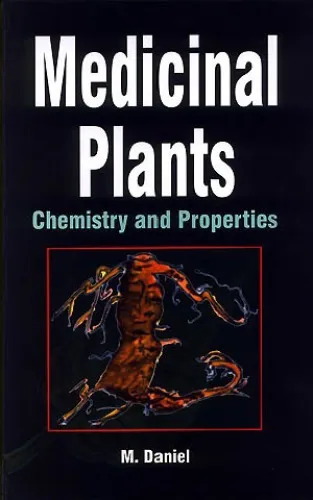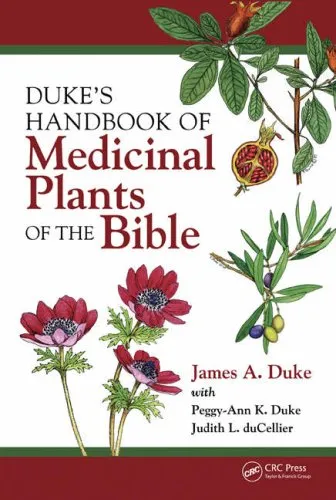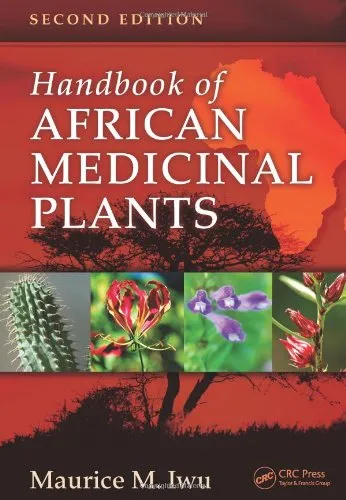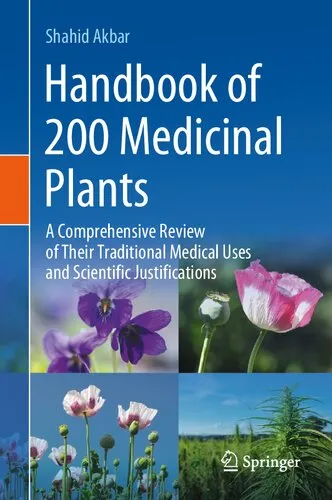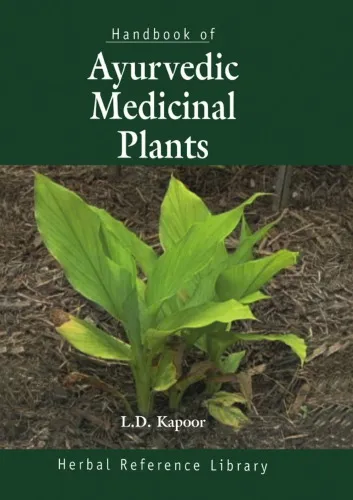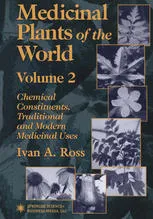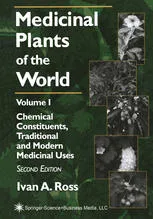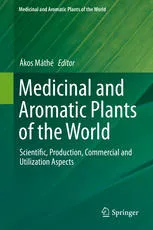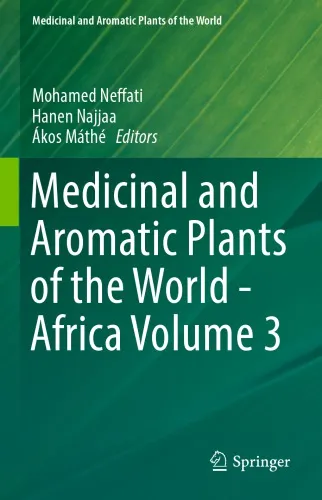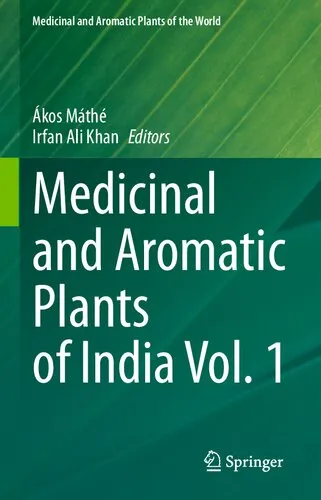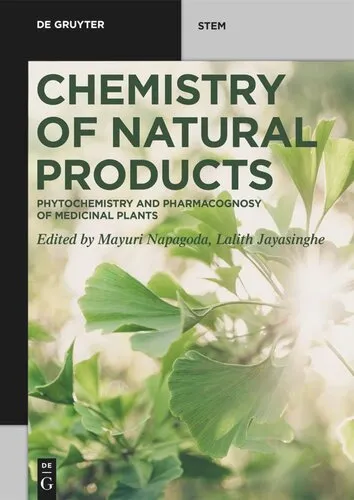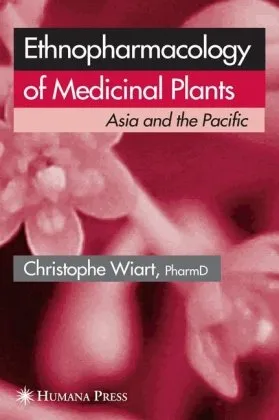Medicinal Plants of the World: Chemical Constituents, Traditional and Modern Medicinal Uses, Volume 2
4.5
Reviews from our users

You Can Ask your questions from this book's AI after Login
Each download or ask from book AI costs 2 points. To earn more free points, please visit the Points Guide Page and complete some valuable actions.Related Refrences:
Introduction to "Medicinal Plants of the World: Chemical Constituents, Traditional and Modern Medicinal Uses, Volume 2"
Welcome to the second volume of Medicinal Plants of the World, a comprehensive exploration of the botanical treasures of our planet. This book serves as an authoritative guide to the chemical constituents, traditional applications, and modern medicinal uses of a wide array of plants. Following the success of the first volume, this continuation delves even deeper, showcasing plants from diverse cultural, medicinal, and scientific perspectives.
As humanity increasingly seeks natural alternatives for health and wellness, medicinal plants hold a wealth of knowledge passed down through generations. From ancient traditions rooted in Indigenous practices to cutting-edge pharmaceutical research, this book bridges the gap between the past and the future. Whether you are a researcher, herbalist, healthcare practitioner, or simply someone passionate about natural remedies, this volume provides a thorough examination of the synergy between plants and human health.
With a focus on both scientific and practical knowledge, Volume 2 continues the mission of equipping readers with a blend of traditional ethnopharmacology and modern biomedical perspectives, offering an unparalleled resource for exploring nature's remedies.
Detailed Summary of the Book
This volume provides a detailed catalog of medicinal plants and their applications, covering species from various geographies and ecosystems. Each entry includes an in-depth analysis of a plant's chemical composition, therapeutic potential, and traditional applications, as well as the latest research findings. The book meticulously integrates information derived from Indigenous wisdom, cultural traditions, and modern pharmacological advances.
Key topics covered in this book include:
- Phytochemical profiles of medicinal plants and their biologically active constituents.
- Therapeutic applications, ranging from anti-inflammatory and antimicrobial agents to adaptogens and immunomodulators.
- The cultural significance and historical context of medicinal plant use across various societies.
- Contemporary pharmaceutical development inspired by natural compounds found in medicinal plants.
The book highlights the interconnectedness between nature, science, and culture, showing how medicinal plants remain vital in both modern medicine and traditional healing practices. By synthesizing extensive research and historical knowledge, this volume is an indispensable reference for advancing the study of medicinal botany.
Key Takeaways
- The Value of Tradition: The book emphasizes the importance of preserving Indigenous and traditional medicinal knowledge in the highly mechanized modern medicine landscape.
- Scientific Depth: Detailed phytochemical analyses provide insights into the specific bioactive compounds that make plants effective for therapeutic use.
- Global Perspective: Highlighting plants from different parts of the world, this volume fosters an appreciation of biodiversity and the unique ways cultures harness plant-based healing.
- Practical Applications: Guidelines for use, dosage, and preparation methods are discussed alongside research, ensuring the book is as practical as it is scholarly.
Ultimately, Medicinal Plants of the World: Volume 2 illuminates the growing field of phytomedicine while staying grounded in the timeless traditions of botanical healing.
Famous Quotes from the Book
Here are some of the most insightful passages from the book:
- “Nature is the earliest chemist; medicinal plants are the blueprints of healing science.”
- “Each plant carries not only the potential to heal but also the history of humanity’s interaction with the natural world.”
- “In every culture, we find that plants are not merely a source of food or oxygen—they are embodiments of care, healing, and survival.”
- “To study medicinal plants is to study the crossroads of science, culture, and human need.”
Why This Book Matters
In an age where industrial pharmaceuticals have overshadowed many natural remedies, this book offers a timely reminder of the importance of medicinal plants in human history and health. By revisiting the roots of traditional medicine and connecting them to current scientific advancements, Medicinal Plants of the World: Volume 2 champions the idea that modern healthcare can—and should—be enriched by nature's wisdom.
With the rise of issues such as drug resistance and the over-reliance on synthetic compounds, the need to explore plant-based solutions is more pressing than ever. This book stands as a comprehensive resource for harnessing botanical medicine to address modern health challenges. Furthermore, it is an advocate for conservation, highlighting the critical link between preserving plant biodiversity and protecting our collective health.
For students, practitioners, and researchers, Medicinal Plants of the World: Volume 2 is not merely a book—it is a call to action, urging us to reconnect with the natural world, preserve its resources, and embrace the medicinal gifts it offers.
Free Direct Download
You Can Download this book after Login
Accessing books through legal platforms and public libraries not only supports the rights of authors and publishers but also contributes to the sustainability of reading culture. Before downloading, please take a moment to consider these options.
Find this book on other platforms:
WorldCat helps you find books in libraries worldwide.
See ratings, reviews, and discussions on Goodreads.
Find and buy rare or used books on AbeBooks.
1537
بازدید4.5
امتیاز0
نظر98%
رضایتReviews:
4.5
Based on 0 users review
Questions & Answers
Ask questions about this book or help others by answering
No questions yet. Be the first to ask!
